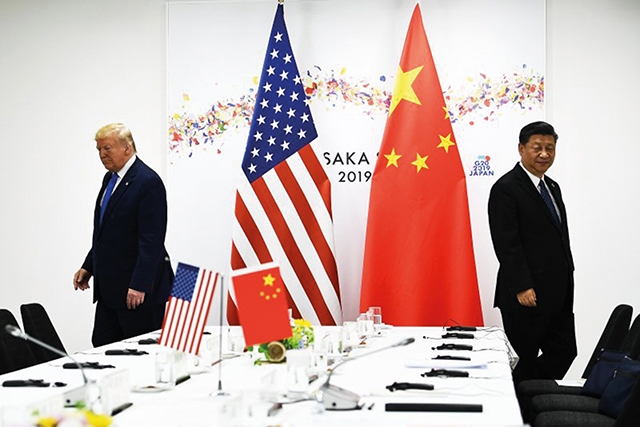The Growing Divide between the US & China
Op-Ed
Many an analyst can exaggerate the impact the the novel coronavirus might have on the world. After all, global supply chains are unlikely to dissipate and the European Union will continue to exist. That said, the pandemic makes and will continue to make changes translating into the geopolitical realm.
We are likely to see increased efforts in the US to create momentum for a disentanglement from China, primarily in the economic sphere. Washington will also be active in regards to its allies in Europe, where calls for a similar policy will grow louder in Europe. Indeed, recently in Europe we have seen a hardening stance on Beijing. As in the US, this follows a trajectory that was already visible before the pandemic when, in 2019, the EU institutions characterized China as a “systemic rival.”
The pandemic has also set the scene for another straw of continuous ideological competition. Both the US and China were already engaged in such a battle, but the crisis will accentuate the divide between the West (especially the US) and China. Many in the West now say the division is between the democratic US and non-democratic (even autocratic) China, a similar feature the Cold War divide between the US and the Soviet Union was famous for.
The pandemic thus ushers in an epoch of distinct distrust between China and America. The latter will gradually shift its geopolitical attention away from the Middle East and toward China and Southeast Asia. This was visible before, in the presidency of Obama, but from 2020 onwards will only accentuate, irrespective of who will be the next US president.
The US will fumble but will eventually come up with a coherent geopolitical stance covering the entire Eurasia. This follows an interesting pattern in US foreign policy. To form a definitive foreign policy stance, that is, to cast a foreign state as an unequivocal geopolitical enemy, the US usually needs to experience a deep geopolitical shock that would consolidate its vision of the rival.
The coronavirus could serve as a defining moment for American foreign policy for the next decade. We can expect to see something on the scale of the US foreign policy refocusing after WWII to counter the Soviet Union in Eurasia. Then, as it is now, the US political elite had trouble coming up with a concrete and long-term foreign policy agenda. Years passed before Washington created a containment policy which stopped the Soviet expansion. Similar is happening nowadays. Those in the top American leadership who have so far been ambivalent regarding China will slowly be sidelined. More and more American allies around the world will be re-engaging the US. China will be seen as an outright competitor.
Not all is guaranteed success on the US side. China is much more powerful than the Soviets. Its influence is far wide-ranging and more difficult to contain than was the case in the Cold War. But the US will nevertheless have to come up with a far more stringent stance on China and ways to counter it. Still, the Americans look far beyond the pandemic. What is at stake is dominance over the ocean, without which the US’ geopolitical power will be questioned.
By Emil Avdaliani
Chinese President Xi Jinping and US President Donald Trump attend their bilateral meeting on the sidelines of the G20 Summit in Osaka on June 29, 2019. Brendan Smialowski—AFP/Getty Images












